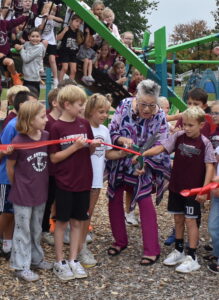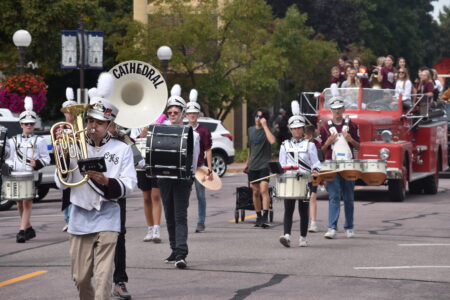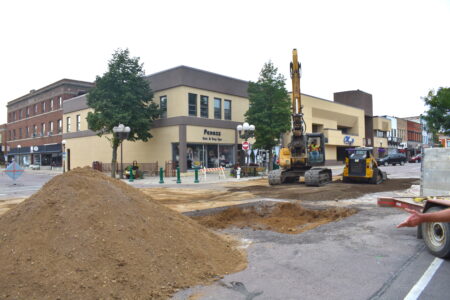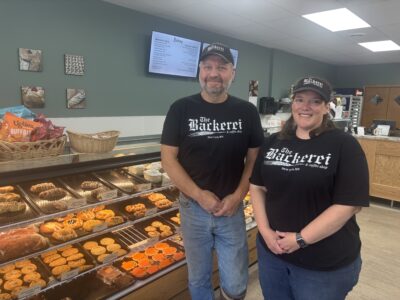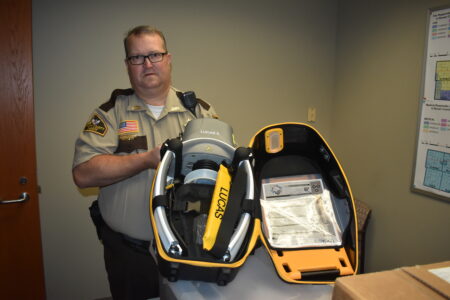NU City Council looks at street closures, residential parking policy
NEW ULM – The New Ulm City Council took a closer look at policies for right-of-way closures and downtown residential parking during a Tuesday work session.
During the work session, the council was presented with a draft policy for right-of-way closure requests. City Manager Chris Dalton said the number of requests to close streets for events is on the rise. He and the staff believed the city needed to clear up the policy and procedures for granting closures. City staff were seeking feedback from the council on this policy.
“I think it’s slightly getting out of hand,” Dalton said. “Not everyone is consistent with cleanup and guidelines.”
City Engineer Joe Stadheim said the draft policy was taken mostly from the City of Mankato and was written to include all public spaces, including streets and parks.
Stadheim said the right-of-way closures would restrict use of public roads to events that are deemed community events by the city council. The draft policy also required an application, fees and insurance requirements for use of a public right-of-way.
Councilor Larry Mack supported adopting a formal policy, but asked what the city had done before.
Dalton said there is currently no right-of-way closure request policy. Individuals or businesses would fill out a right-of-way closure application and possibly request a liquor license extension.
“This essential would morph into an events application,” Dalton said. “All of these would be consolidated into one [application].”
Dalton used Oktoberfest as an example. Instead of each business requesting closure of the street and extension of a liquor license, an event organizer–likely the Chamber of Commerce–would communicate with all the businesses and fill out a single application. This would eliminate the city’s need to grant multiple liquor license extensions for every business that wants to participate in Oktoberfest.
Councilor Eric Warmka asked how often the city would be updating the list of what was considered a community event, since the new policy would limit right-of-way closures to approved community events.
Dalton said the list of community events is approved at least once a year in January by the council, but it can be updated more often if needed.
Councilor David Christian said the policy, as written, includes a 20-foot fire lane to be maintained for special events. He liked this inclusion but pointed out that it would eliminate most right-of-way closures for alleys.
New Ulm Area Chamber President Sarah Warmka attended the meeting and asked if the fire lane regulation would prohibit holding the Spikin’ in the Street sand volleyball tournament.
Stadheim said as written, that would be an issue for the policy and would require modification to allow it.
New Ulm Fire Chief Paul Macho said as long as there is access to the back of the buildings through the alleys, the front of the buildings could remain blocked off.
Macho said the Fire Department already planned to use the alley for fire access when the frontage streets were closed.
Councilor Eric Warmka asked if the city currently had a fee in place for road closures.
Dalton said there is currently no fee, but it is being considered in conjunction with this policy. He said it does take time for the public works department to drop off barricades for special events. The fee would be used to compensate their time.
Mayor Kathleen Backer supported moving forward with the policy.
“I like that it is all here,” Mayor Kathleen Backer said. “It lets you know what is required in order to move forward.”
She also appreciated that the policy included a safety and cleanup plan. She said safety and cleanup sometimes falls through the cracks if it is not written into the policy.
“I really appreciate these public special events and I would like to see them continue,” Councilor Tom Schmitz said. “I also support formalizing this policy, making it clear and concise and not burdening the taxpayer.”
Council President Andrea Boettger said this was a good start and the policy could streamline the approval process.
Later in the work session, the council also discussed the growing need for residential parking in the downtown.
Dalton said many of the residents living downtown do not necessarily have off-street parking. The city is proposing to create a downtown residential permit. Each apartment would be allowed one residential permit that would exempt the residents from hourly parking.
“They could literally park in the city parking lot all day if they choose,” Dalton said.
The only exception to the residential permit would be Minnesota Street. Residents would not be exempt from hourly parking during the business day. However, after 5 p.m., residents with the permit could park on Minnesota Street overnight until the morning.
This method would reduce the need for the city to turn parking spots into reserve parking. The permit would be issues as a special parking tag in the vehicle windshield.
The council supported the residential parking permit, but Boettger asked why overnight parking was not currently allowed on Minnesota Street.
Stadheim said the law was probably related to snow emergency concerns. However, with the permit in place, the city would have a method of contacting residents if their vehicle needs to be moved.
“I think it is a simple solution instead of converting to reserve parking,” Dalton said.
Backer asked if there could be a problem with a lot of residential permits being issued in one block area. She worried this could cause congestion.
Dalton said there are multiple other parking areas besides Minnesota Street, including the city lot.
No official action was taken by the council on either the right-of-way event policy or residential downtown parking permit during the work session.

